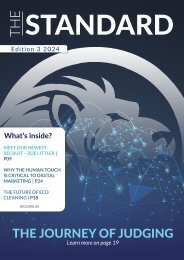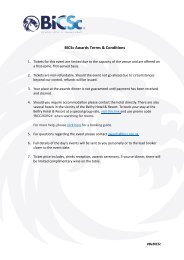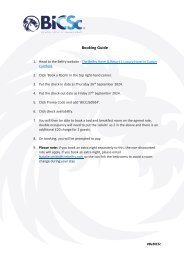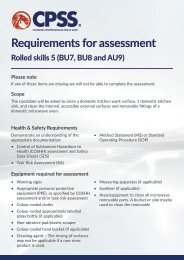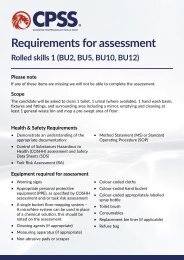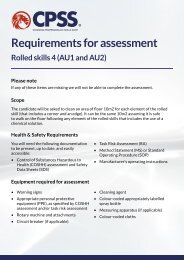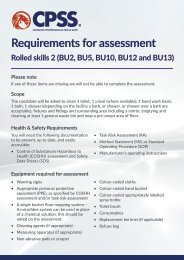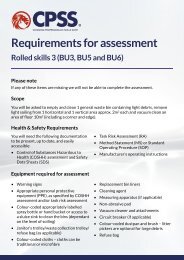The Standard Issue 4 2023
Read the latest issue of The Standard today!
Read the latest issue of The Standard today!
You also want an ePaper? Increase the reach of your titles
YUMPU automatically turns print PDFs into web optimized ePapers that Google loves.
AI AND ROBOTICS<br />
REPLACING PEOPLE<br />
Every forward-looking cleaning<br />
brand must remain ahead<br />
of industry advancements.<br />
While technological progress<br />
is undeniable, automation<br />
doesn't provide a solution for all<br />
challenges. Future clients will seek<br />
harmony between technology<br />
and human expertise while<br />
considering the consequences of<br />
carbon, energy, and water usage.<br />
Additionally, numerous cleaning<br />
brands aspire to attain B Corp<br />
certification, and innovation plays<br />
a pivotal role in this process.<br />
<strong>The</strong> latest automated innovations<br />
in the cleaning sector aren't<br />
designed to replace workers,<br />
who are still very much needed.<br />
However, the benefits of<br />
automation from a social and<br />
environmental standpoint are<br />
undeniable, including lower water<br />
usage (4l for 650sqm of the floor<br />
is one brand's goal) and further<br />
efficiencies in time and cost.<br />
Here are some further examples<br />
of the radical innovations<br />
that are developing within<br />
the cleaning industry:<br />
• Stabilised Aqueous<br />
Ozone and probiotic<br />
cleaning products<br />
• Biodegradable, pre-dosed<br />
soluble cleaning solution sachets<br />
• Automated robots or 'cobots'<br />
(collaborative robotic cleaning)<br />
DATA<br />
Without data, enacting<br />
meaningful change in the right<br />
places is almost impossible.<br />
Cleaning brands should be<br />
gathering data and understanding<br />
supply chain emissions as much as<br />
possible, with lifecycle assessments<br />
and dream scenarios for the future.<br />
Many cleaning manufacturers do<br />
not track data on CO2, which can<br />
make gathering information on<br />
emissions and backing up green<br />
claims even tougher. Challenging<br />
manufacturers with detailed<br />
surveys is the best way to hold<br />
them accountable and collect<br />
those vital statistics.<br />
COMMUNICATING POSITIVE<br />
ENVIRONMENTAL CHANGE<br />
Raising awareness serves as<br />
the cornerstone of progress.<br />
Integrating the communication<br />
of environmental action changes<br />
into your sustainability strategy<br />
is essential but often complicated<br />
by the complexity of a product's<br />
environmental claims.<br />
Clients may struggle to grasp the<br />
environmental impact of certain<br />
products, especially when cost<br />
considerations dominate their<br />
choices. Educating them on the<br />
long-term value of environmentally<br />
friendly options is challenging but<br />
increasingly vital as environmental<br />
awareness grows. Effectively<br />
conveying sustainable practices<br />
to employees, from optimal<br />
product usage to scheduling,<br />
remains a further challenge.<br />
Addressing these challenges,<br />
Planet Mark specialises in<br />
supporting its members and<br />
partners to communicate<br />
sustainability to its stakeholders,<br />
aiding them in comprehending<br />
the financial and societal<br />
consequences of<br />
their choices.<br />
FOR THE FULL REPORT, VISIT<br />
THE PLANET MARK'S WEBSITE<br />
AT: WWW.PLANETMARK.COM<br />
24 | 25



